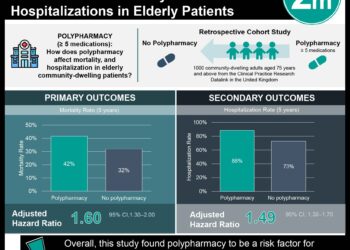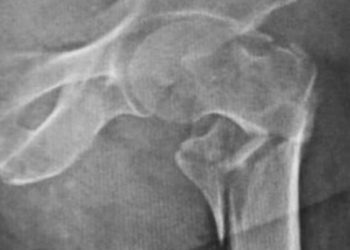Prophylactic nirsevimab protects infants from respiratory syncytial virus infection
1. Single-dose intramuscular injection of nirsevimab significantly reduced respiratory syncytial virus (RSV) infection in infants.
2. Nirsevimab was shown to reduced associated hospitalizations in infants.
Evidence Rating Level: 1 (Excellent)
Study Rundown: Respiratory syncytial virus (RSV) is a seasonal virus that poses a significant threat to newborns for lower respiratory tract infection leading to hospitalization. To combat this, nirsevimab, which is a monoclonal antibody that prevents RSV viral entry, can be administered prophylactically. Given its favorable safety profile and efficacy data in preterm infants, this phase 3 randomized control trial sought to investigate the efficacy of nirsevimab in late preterm and term infants. Infants born with a gestational age of at least 35 weeks were randomized in a 2:1 ratio to either receive one intramuscular dose of nirsevimab prior to the start of RSV season, or a placebo. The primary outcome for this study was the rate of RSV-associated infection at 150 days follow-up, while secondary endpoints looked at rates of hospitalization in the same time frame. The study found that infants receiving nirsevimab indeed had significant rates of RSV infection and associated hospitalization at 150 days follow-up. Rates of serious adverse events were similar between both groups supporting a favorable safety profile. Taken together, this study supports the use of nirsevimab before RSV season to lower rates of RSV-associated infection and hospitalization. This study was limited by a smaller than desired study size, but more importantly, decreased overall rates of RSV infection, both due to the COVID-19 pandemic.
Click to read the study in NEJM
Relevant Reading: A highly potent extended half-life antibody as a potential RSV vaccine surrogate for all infants
In-Depth [randomized controlled trial]: In this phase 3 randomized control trial, 1490 infants born with a gestational age of at least 35 weeks (late pre-term or term) were randomized in a 2:1 ratio, stratified for hemisphere and age, to receive a single intramuscular injection of nirsevimab or placebo. The primary endpoint assessed the percentage of infants with RSV-caused lower respiratory tract infection, as defined by positive polymerase-chain-reaction assay or RSV-associated clinical signs, at 150 days post-injection. The secondary endpoints analyzed the percentage of infants hospitalized due to RSV infection within the same follow-up period and safety profile. Differences in proportions between groups were statistically analyzed by the Poisson regression model with robust variance. The results of the study found that nirsevimab was able to significantly reduce the proportion of infants who contracted RSV-associated lower respiratory tract infections with 74.5% efficacy (95% confidence interval [CI], 49.6 – 87.1; P<0.001). Similarly, infants treated with nirsevimab have a lower proportion of RSV-associated hospitalization at 0.6% compared to 1.6% in the placebo group, albeit not with significant efficacy (P=0.07). Similar rates of severe adverse events were experienced between both groups (nirsevimab, 6.8%; placebo, 7.3%) with 3 deaths occurring in the nirsevimab group. Pharmacokinetics and antibody titer data were comparable to previous studies. Overall, this study supports the use of single intramuscular administration of nirsevimab for the prevention of RSV infection and hospitalization in late preterm and term infants.
Image: PD
©2022 2 Minute Medicine, Inc. All rights reserved. No works may be reproduced without expressed written consent from 2 Minute Medicine, Inc. Inquire about licensing here. No article should be construed as medical advice and is not intended as such by the authors or by 2 Minute Medicine, Inc.







